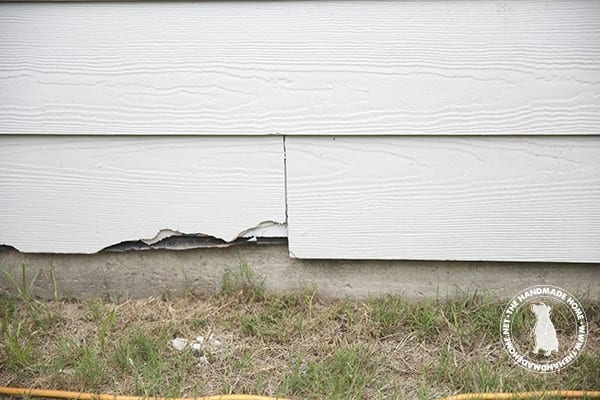Step 1 slide the thin edge of a flat pry bar carefully under the lower edge of the first piece of hardieplank siding to be removed.
How to replace broken hardiplank siding.
Fiber cement siding removal procedures to minimize dust to permit possible salvage re use of the material.
Allow the patch to thoroughly dry and apply another thin layer of patching material if the first layer shrank during the drying process.
Brush away any chipped paint small loose pieces of siding or anything else that mars the plane of the siding.
Removal options vary somewhat based on installation technique and whether you are removing one or a few pieces of siding for replacement or demoing the siding from the structure altogether.
Fiber cement board lap siding repair guide.
Remove any nails from the top piece of good siding.
Use a 4 foot level to check and then hammer in another nail.
The article details just how the old fiber cement siding was removed with minimum damage.
If you re replacing more than one board in a run simply hammer a nail into the top corner to support it and then move half way down the board.
To remove and replace damaged siding.
Step 2 sand over the damaged area lightly but thoroughly with a medium grit sandpaper to smooth any jagged edges and create an easy grip surface for the patch product.
Cut the fiber cement siding to length wear approved dust protection.
Use a plastic putty knife to apply the patching material to the damaged area filling in the area and shaping the patch to match the original contours of the siding.
Use a pry bar to remove the damaged siding.
Our page top photo shows loose and improperly installed fiber cement siding on.
This article describes repair procedures for cosmetic or functional siding issues that may arise such as loose siding wind damaged siding siding paint or coating failures and siding gaps especially gaps at fiber cement siding butt joints where lap siding is installed.
Face nail the top piece of fiber cement siding through the old siding.





























